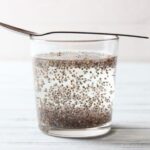Drinking pure lemon juice, without diluting it with water, has recently become a popular trend on social media. Proponents of this practice claim that consuming high doses of lemon juice can detoxify the body, aid in weight loss, treat stomach inflammation, protect the intestines, reduce gynecological infections, and improve kidney function.
What Happens to Your Body If You Drink High-Dose Lemon Juice in the Morning?
According to experts, drinking lemon juice in such high concentrations can have negative effects on your health. Dr. Dinh Tran Ngoc Mai, a specialist in the Department of Nutrition and Dietetics at the University Medical Center in Ho Chi Minh City, told Thanh Nien newspaper that drinking concentrated lemon juice on an empty stomach can have harmful effects on the body, including:
- Stomach Irritation: Lemon juice is acidic. Drinking it on an empty stomach can aggravate acid reflux or stomach ulcers.
- Dental Enamel Erosion: The acidity of lemon juice can damage tooth enamel, making your teeth more sensitive.
- Not Suitable for People with Oxalate Kidney Stones: While citric acid in lemons can help prevent kidney stones, lemons also contain oxalates, which can increase the risk of kidney stone formation. High doses of lemon juice may be counterproductive for individuals with oxalate kidney stones.

Dr. Vi Thi Tuoi, Deputy Director of the Institute for Nutrition Research and Consulting (NRECI), expressed similar concerns in an interview with Ho Chi Minh City Law newspaper. She stated that daily consumption of high doses of lemon juice can have adverse effects on digestion, oral health, and overall well-being.
Additionally, some individuals with sensitive stomachs may experience negative reactions such as nausea, abdominal pain, and diarrhea when consuming excessive amounts of concentrated lemon juice over a short period. Combining this practice with fasting can lead to dehydration, electrolyte imbalances, and low blood pressure.
Furthermore, it is extremely dangerous to put concentrated lemon juice directly into the eyes to treat styes or other eye conditions. The acidity of the lemon juice can cause corneal and conjunctival burns and may even result in loss of vision in severe cases.
Precautions When Using Lemon Juice
It is recommended to dilute lemon juice with water before consumption, but it should not be used as a complete substitute for water. Lemon juice should be consumed after meals. If you have digestive or dental issues or are taking medication, consult your doctor before regularly consuming lemon juice.
The amount of lemon juice consumed should also be moderate. For adults, half to one lemon per day, or 25-50ml of lemon juice, is recommended. This should be diluted with 250-500ml of water before drinking. Using a straw to drink lemon juice and rinsing your mouth with water afterward can help minimize the acid’s contact with your tooth enamel.
In conclusion, while the trend of drinking high-dose lemon juice in the morning may be popular on social media, it does not offer any proven health benefits. It is important to consult with healthcare professionals and rely on scientific evidence when considering such practices to avoid potential harm to your health.
The Ultimate Superfood: Discover the Vegetable That Grows with Ease and Packs a Powerful Vitamin C Punch
Water dropwort, or rau ngót, is an incredibly easy vegetable to grow, requiring only a simple branch-plugging technique to thrive. But beyond its accessibility as a household food, rau ngót is a bona fide “superfood,” boasting a vitamin C content that surpasses that of oranges and tangerines tenfold.
The Secret Ingredient to Enhance Ginger Water’s Weight Loss Properties Post-Tet
Introducing the ultimate solution to your post-holiday weight worries – Ginger Chia Seed Water, your powerful ally in the battle against stubborn fat. This dynamic duo of ginger and chia seeds creates a potent formula that targets internal fat, helping you achieve your fitness goals and embrace a healthier you.



































